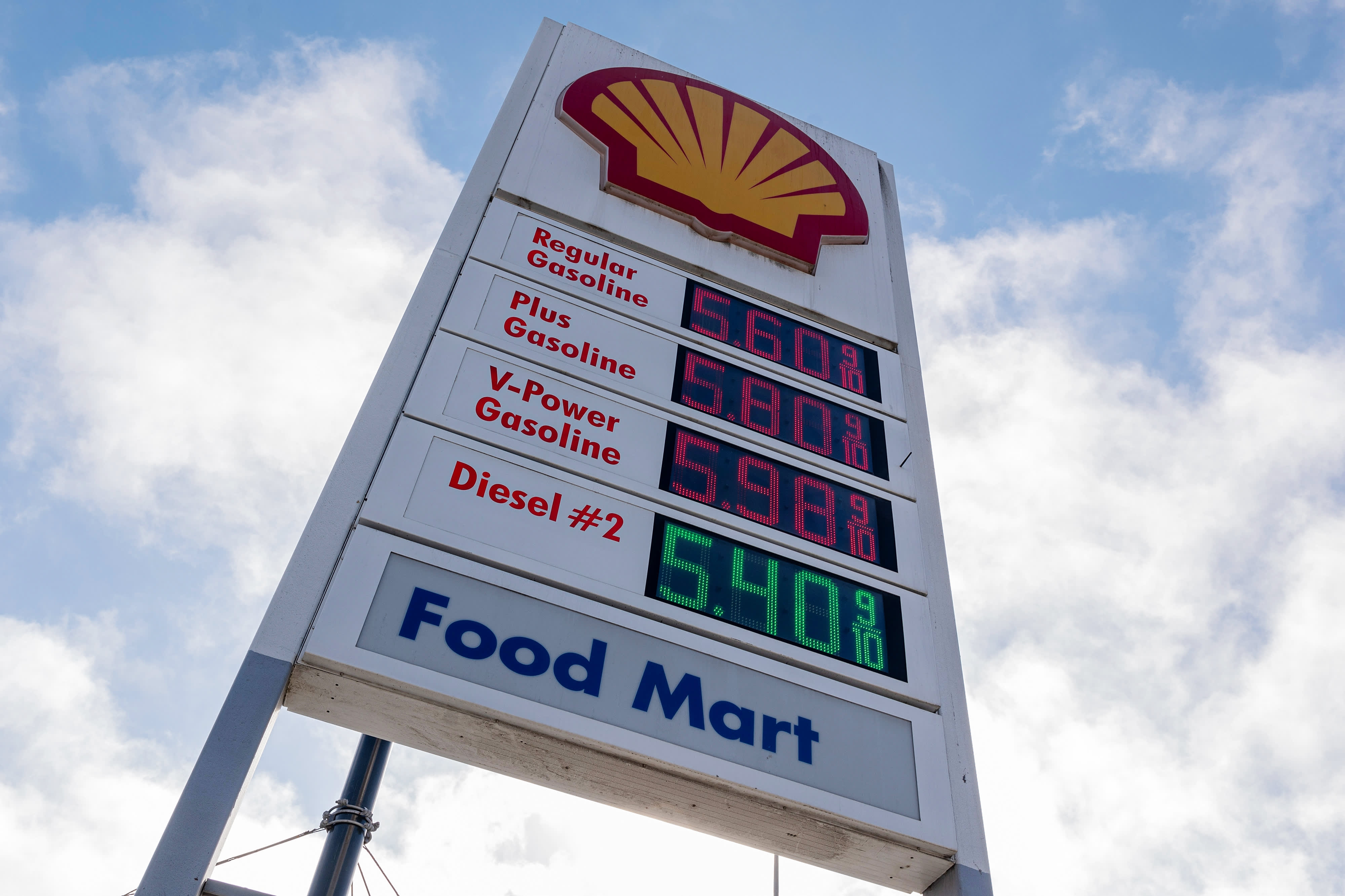Oil giant Shell misses on third-quarter profit as Dan Loeb calls for the company to break up

Gasoline prices at a Royal Dutch Shell Plc gas station in San Francisco, California, U.S., on Wednesday, July 7, 2021.
David Paul Morris | Bloomberg | Getty Images
LONDON — Oil giant Royal Dutch Shell on Thursday reported weaker-than-expected third-quarter earnings as New York-based hedge fund Third Point called on the energy major to break up.
Shell also announced it had set itself a bigger carbon reduction target.
The Anglo-Dutch company posted adjusted earnings of $4.1 billion for the three months through to the end of September. That compared with $955 million over the same period a year earlier and $5.5 billion for the second quarter of 2021.
Analysts had expected third-quarter adjusted earnings to come in at almost $6 billion, according to Refinitiv.
Shell issued a note to investors earlier this month warning that Hurricane Ida in the Gulf of Mexico likely had an aggregate adverse impact of roughly $400 million on adjusted earnings.
The company on Thursday said lower contributions from trading and optimization when compared to the second quarter had also impacted third-quarter results. This was only partly offset by a global energy supply crunch that has sent oil and gas prices soaring.
“This quarter we’ve generated record cash flow, maintained capital discipline and announced our intention to distribute $7 billion to our shareholders from the sale of our Permian assets,” Ben van Beurden, CEO of Shell, said in a statement.
Billionaire activist investor Dan Loeb on Wednesday called on Shell to break up into multiple companies to strengthen its performance and market value.
His comments came shortly after it emerged that Loeb’s Third Point had built a stake of roughly $750 million in Shell, according to various media reports that couldn’t be independently verified by CNBC.
Shell acknowledged Loeb’s letter to clients calling for the company to split.
The company added that it “regularly reviews and evaluates the Company’s strategy with a focus on generating shareholder value. As part of this ongoing process, Shell welcomes open dialogue with all shareholders, including Third Point.”
Shares of Shell dipped 3% during early morning trade in London. The oil and gas company has seen its stock price climb roughly 41% year-to-date, having collapsed almost 45% in 2020.
Dividends declared to Shell shareholders for the quarter amounted to 24 cents per share, unchanged from the previous quarter.
Net debt came in at $57.5 billion, reflecting a decrease from $67 billion at the end of the second quarter. Shell said this was mainly driven by free cash flow generation.
COP26 in focus
Shell said it planned to cut absolute emissions from its operations and the electricity it uses — sometimes referred to as Scope 1 and 2 emissions — by half by the end of the decade, when compared to 2016 levels.
It has pledged to become a net-zero carbon emissions company by 2050.
In a landmark ruling earlier this year, a Dutch court ordered Shell to take much more aggressive action to drive down its carbon emissions. It ruled in May that the energy major is responsible for its own carbon emissions and those of its suppliers, known as Scope 3 emissions, and must reduce its emissions by 45% by 2030.
Members of the environmental group MilieuDefensie celebrate the verdict of the Dutch environmental organisation’s case against Royal Dutch Shell Plc, outside the Palace of Justice courthouse in The Hague, Netherlands, on Wednesday, May 26, 2021.
Peter Boer | Bloomberg | Getty Images
The verdict was thought to be the first time in history a company has been legally obliged to align its policies with the 2015 Paris Agreement.
Shell is appealing the ruling, a move that has been sharply criticized by climate activists.
Shell’s results come shortly before COP26, a climate summit widely regarded as one of the world’s most important diplomatic meetings in history.
The U.K. will host the U.N.-brokered talks in Glasgow, Scotland from Oct. 31 through to Nov. 12.
Politicians and business leaders are under huge pressure to meet the demands of the climate crisis by delivering on the promises made as part of the Paris Agreement.
The world’s leading climate scientists have repeatedly warned humanity must take drastic and urgent measures to limit future temperature rise to a survivable amount. And the best weapon to tackle rising global temperatures is to cut greenhouse gas emissions — fast.
Burning fossil fuels, such as coal, oil and gas, is the chief driver of the climate emergency.
A rebound in profits for oil and gas companies so far this year has coincided with efforts to reassure investors that they have gained a much more stable footing after a brutal year by virtually every measure in 2020.
Analysts have warned, however, that while energy companies are likely to try to claim a clean bill of health, investors may harbor a “tremendous degree” of skepticism about the business models of fossil fuel companies in the long term.
Norwegian energy major Equinor on Wednesday recorded its strongest quarterly financial results in nine years, buoyed by skyrocketing natural gas prices.
U.K.-based BP is scheduled to report its third-quarter earnings early next week.




